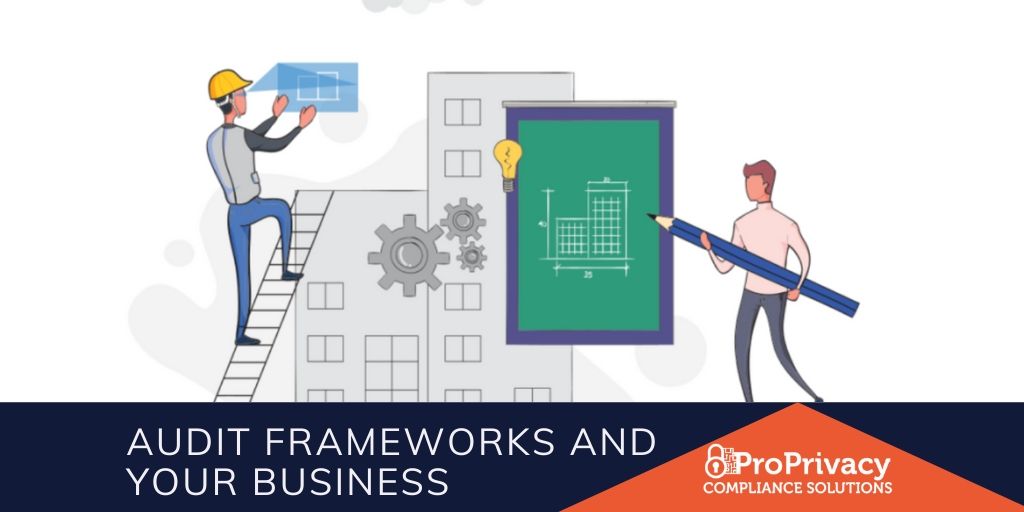How Audit Frameworks Affect Your Operations
What is an audit framework?
While GDPR and associated regulations provide an overarching framework for the collection, processing, storage, and use of personal data, audit frameworks tweak that process even further, by providing your business with an applicable, relevant way to audit your company’s data policies and procedures. Moreover, as audit frameworks make things simpler to understand for your business, and easier to measure, they also help to ensure your company’s progression towards data compliance maturity.
Systems and processes
Ensuring your business is not only compliant but also cyber-secure is an essential business imperative. By securing your data and ensuring compliance, you’re effectively ensuring your business’ longevity. Future-proofing your business enables not only growth and security, but also inspires a business journey that’s conscientious, and equipped to protect the most important elements of every business: people and data, at all levels. Don’t forget, however, that ensuring data compliance is not a once-off process – annual audits and checks are required, and most companies take between 3 to 5 years to reach maturity on their data compliance cycle. Hang in there – it’s a business process, not a once-off project.
The NIS Directive
Approved and adopted in July 2016, the NIS Directive was the first piece of cybersecurity legislation passed by the European Union (EU). As the European Union governs a large expanse of trade relations and capabilities across the region and, in particular, GDPR regulations govern essential business processes, this directive has an effect on how your business audits and assesses its data compliance and progress. This Directive aims to enhance and improve cybersecurity across the European Union and, as a result, countries and regions within the EU had to realign their legislation and regulations to adhere to the principles of this Directive.
National Cybersecurity Strategy
Within Ireland, the National Cybersecurity Strategy introduces and provides guidelines for the introduction of compliance standards, while further expanding the Critical National Infrastructure protection system. If your business operates within the realm of essential services, or to governmental and public sector organisations, we recommend compliance in alignment with this strategy.
Essential service providers
The NIS Directive focuses on companies and organisations who provide essential services, namely Operators of Essential Services and Digital Service Providers. These essential services usually include any operational businesses or organisations that work within the financial sector, energy sector, transport services, health, infrastructure, water and sanitation sectors. Once organisations are notified or become aware that their data processing procedures must align with the NIS Directive, owing to the nature of their business, the following audit framework applies in the Republic of Ireland:
- National Institute of Standards and Technology (NIST) Cybersecurity Framework: Built and implemented to help your business manage and audit its cybersecurity needs, the NIST Cybersecurity Framework includes a full range of standard, guidelines, and best practices. This framework helps you assess, monitor, and audit your company’s ability to detect and respond to cybersecurity incidents at all levels. This Cybersecurity Framework is distinctly important for your business if you deal with customers from around the world.
Other audit frameworks
Depending on your region, customer base, business operations, or other variables, other audit frameworks and regulatory requirements apply. Please note too, that your suppliers may be subject to the regulations associated with these frameworks. These related frameworks may include:
- National Institute of Standards and Technology (NIST) Privacy Framework: While ensuring personal privacy is a fundamental imperative for all regulations and legislation, this Privacy Framework focuses particularly on ensuring ethical decision-making, building customer trust, and ensuring data compliance.
- National Cyber Security Centre Cyber Essentials: As a form of certification, the National Cyber Security Centre Cyber Essentials is a requirement should you wish to work with any public sector programmes. There are 3 levels of certification you can apply for and complete.
If you need help with understanding your company’s requirements in terms of audit frameworks and legislative compliance, contact ProPrivacy. We’ll help you stay on the right side of regulation.
Philipa is the lead consultant and auditor at ProPrivacy. With clients as far afield as Canada, South Africa, Kenya, Germany, Spain and other such exotic locations, besides Cork and elsewhere in Ireland, Philipa enjoys a broad view of the state of data protection, privacy and cyber security worldwide. Philipa’s passion is manageable data compliance for SMEs.
Philipa is a qualified teacher besides holding a computer science (Bachelor of Science in Artificial Intelligence Programming) and electronic and intellectual property law (LLB) qualified. She is trained in constitutional (fundamental) rights litigation and enjoys a good debate.
Philipa has over twenty years of experience working in different sized organisations and sectors on operational, governance, risk management and compliance matters. She is an analytical and focused person that enjoys a challenge in the workplace. She loves technology, systems and people and has a passion for showing people how technology can make life easier and better. She understands that the world is driven by data today but privacy is paramount. Responsibly developed AI excites Philipa for the future.

